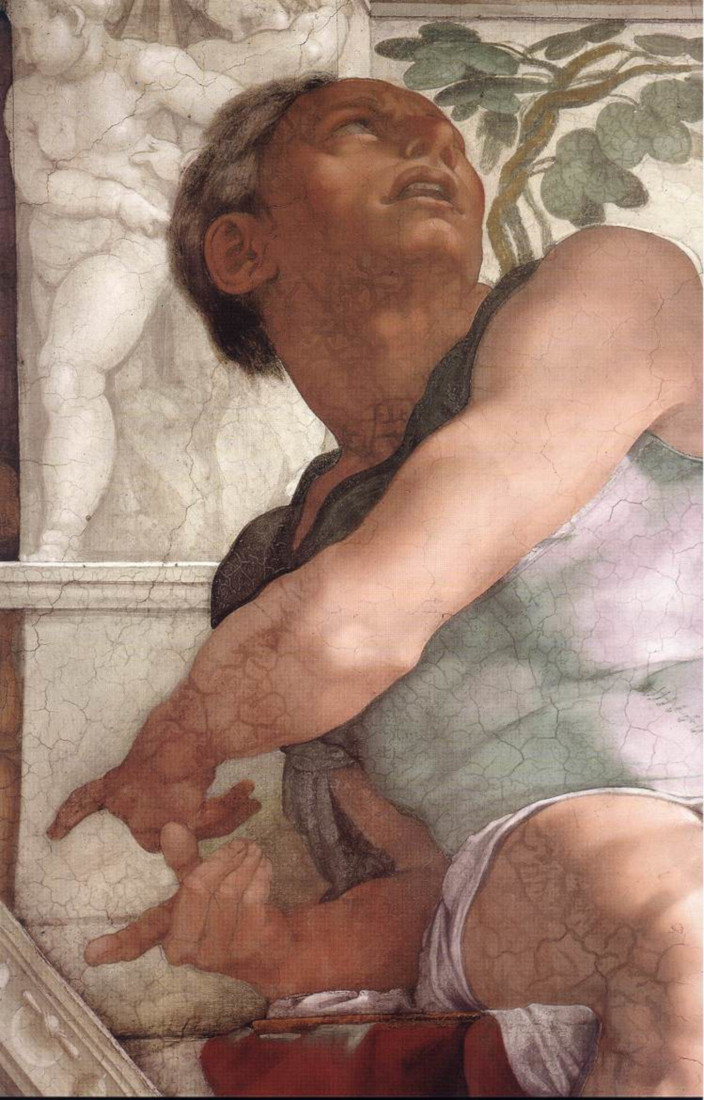Catholic Charities. Providing Help. Creating Hope.
VISION: Believing in the presence of God in our midst, we proclaim the sanctity of human life and the dignity of the person by sharing in the mission of Jesus given to the Church. To this end, Catholic Charities works with individuals, families, and communities to help them meet their needs, address their issues, eliminate oppression, and build a just and compassionate society.
MISSION: Rooted in the Mission of the Diocese of Youngstown "to minister to the people in the six counties of northeastern Ohio . . .(and) to the world community", we are called to provide service to people in need, to advocate for justice in social structures, and to call the entire Church and other people of good will to do the same.
GOALS: Catholic Charities is devoted to helping meet basic human needs, strengthening families, building communities and empowering low-income people. Working to reduce poverty in half by 2020.
KEY VALUE: Hospitality
WHAT WE DO: Organizing Love. "As a community, the Church must practise love. Love thus needs to be organized if it is to be an ordered service to the community" (Deus Caritas Est, par. 20)
On Sunday (Fourth Sunday in Ordinary Time, B http://www.usccb.org/bible/readings/012912.cfm) we read in the Gospel of Mark about Jesus’ engagement with people. Some are utterly amazed at the power and Presence of this man; some see him as a new prophet foretold by Moses himself (see first reading from Deuteronomy). Others see Jesus and cry out in their pain for release; Jesus gives that healing touch. Others are ready to betray him.
In Catholic Charities http://www.ccdoy.org , we know the power of the Presence of the Lord in our lives. Jesus commanded the Church to continue his work of healing and prophecy. Catholic Charities’ services and programs provide that healing to persons and families in need, in distress, in despair, in fear. We also continue being prophets by calling all people, especially governmental leaders, to find ways to address injustices in society. Catholic Charities provides hope for persons in need by our specific services and advocacy efforts.
Reflection from Church Documents and Official Statements
Pontifical Council of Justice and Peace
TOWARDS REFORMING THE INTERNATIONAL FINANCIAL AND MONETARY SYSTEMS IN THE CONTEXT OF GLOBAL PUBLIC AUTHORITY, October 24, 2011
As we read in Caritas in Veritate, “The governance of globalization must be marked by subsidiarity, articulated into several layers and involving different levels that can work together.” Only in this way can the danger of a central Authority’s bureaucratic isolation be avoided, which would otherwise risk being delegitimized by an excessive distance from the realities on which it is based and easily fall prey to paternalistic, technocratic or hegemonic temptations.
However, a long road still needs to be travelled before arriving at the creation of a public Authority with universal jurisdiction. It would seem logical for the reform process to proceed with the United Nations as its reference because of the worldwide scope of its responsibilities, its ability to bring together the nations of the world, and the diversity of its tasks and those of its specialized Agencies. The fruit of such reforms ought to be a greater ability to adopt policies and choices that are binding because they are aimed at achieving the common good on the local, regional and world levels. Among the policies, those regarding global social justice seem most urgent: financial and monetary policies that will not damage the weakest countries; and policies aimed at achieving free and stable markets and a fair distribution of world wealth, which may also derive from unprecedented forms of global fiscal solidarity, which will be dealt with later.
On the way to creating a world political Authority, questions of governance (that is, a system of merely horizontal coordination without an authority super partes cannot be separated from those of a shared government (that is, a system which in addition to horizontal coordination establishes an authority super partes) which is functional and proportionate to the gradual development of a global political society. The establishment of a global political Authority cannot be achieved without an already functioning multilateralism, not only on a diplomatic level, but also and above all in relation to programs for sustainable development and peace. It is not possible to arrive at global Government without giving political expression to pre-existing forms of interdependence and cooperation.
Some important date(s) this week:
http://www.americancatholic.org/Features/Saints/ByDate.aspx
See website for biographies of Saints and Blessed celebrated this week.
JANUARY is Campaign to Reduce Poverty Month
Bishop Murry releases “Who is My Neighbor?” A Pastoral Letter on Poverty. Visit full text at http://www.doy.org/files/Scroller/Pastoral.pdf
See more about domestic poverty with updated statistics on the Poverty USA landing page on the USCCB website (www.usccb.org/about/catholic-campaign-for-human-development/povertyusa/), as well as resources including an interactive poverty tour and a newly-launched presence on Facebook (www.facebook.com/povertyusa).
http://spiritualpaintings.com/images/06.01.25.6175.jpg
THURSDAY FEBRUARY 2. CANDLEMAS DAY/The Presentation of the Lord
At the end of the fourth century, a woman named Etheria made a pilgrimage to Jerusalem. Her journal, discovered in 1887, gives an unprecedented glimpse of liturgical life there. Among the celebrations she describes is the Epiphany (January 6), the observance of Christ’s birth, and the gala procession in honor of his Presentation in the Temple 40 days later—February 15. (Under the Mosaic Law, a woman was ritually “unclean” for 40 days after childbirth, when she was to present herself to the priests and offer sacrifice—her “purification.” Contact with anyone who had brushed against mystery—birth or death—excluded a person from Jewish worship.) This feast emphasizes Jesus’ first appearance in the Temple more than Mary’s purification.
The observance spread throughout the Western Church in the fifth and sixth centuries. Because the Church in the West celebrated Jesus’ birth on December 25, the Presentation was moved to February 2, 40 days after Christmas.
At the beginning of the eighth century, Pope Sergius inaugurated a candlelight procession; at the end of the same century the blessing and distribution of candles which continues to this day became part of the celebration, giving the feast its popular name: Candlemas.
http://www.archangelsbooks.com/prodimages/Large/Icons/a-250.jpg
FRIDAY, FEBRUARY 3. St. Blaise. (d. 316)
We know more about the devotion to St. Blaise by Christians around the world than we know about the saint himself. His feast is observed as a holy day in some Eastern Churches. The Council of Oxford, in 1222, prohibited servile labor in England on Blaise’s feast day. The Germans and Slavs hold him in special honor and for decades many United States Catholics have sought the annual St. Blaise blessing for their throats
We know that Bishop Blaise was martyred in his episcopal city of Sebastea, Armenia, in 316. The legendary Acts of St. Blase were written 400 years later. According to them Blaise was a good bishop, working hard to encourage the spiritual and physical health of his people. Although the Edict of Toleration (311), granting freedom of worship in the Roman Empire, was already five years old, persecution still raged in Armenia. Blaise was apparently forced to flee to the back country. There he lived as a hermit in solitude and prayer, but made friends with the wild animals. One day a group of hunters seeking wild animals for the amphitheater stumbled upon Blaise’s cave. They were first surprised and then frightened. The bishop was kneeling in prayer surrounded by patiently waiting wolves, lions and bears.
As the hunters hauled Blaise off to prison, the legend has it, a mother came with her young son who had a fish bone lodged in his throat. At Blaise’s command the child was able to cough up the bone.
Agricolaus, governor of Cappadocia, tried to persuade Blaise to sacrifice to pagan idols. The first time Blaise refused, he was beaten. The next time he was suspended from a tree and his flesh torn with iron combs or rakes. (English wool combers, who used similar iron combs, took Blaise as their patron. They could easily appreciate the agony the saint underwent.) Finally he was beheaded.
SHARING HOPE IN HARD ECONOMIC TIMES.
Catholic Charities’ Regional Agency Invites you to a Fabulous Night at Home! In support of the Catholic Charities sponsored Domestic Violence shelter, Christina House. January 2012…any night of your choice! No need to do anything…relax, watch a movie, sleep. Just consider making a donation. For more information, visit http://www.catholiccharitiesyoungstown.org/ccdoy-night-at-home.html
PAPAL INTENTIONS: JANUARY 2012
General Intention: Victims of Natural Disasters.That the victims of natural disasters may receive the spiritual and material comfort they need to rebuild their lives.
Missionary Intention: Dedication to Peace.
That the dedication of Christians to peace may bear witness to the name of Christ before all men and women of good will.
General Intention: Access to Water.
That all peoples may have access to water and other resources needed for daily life.
Missionary Intention: Health Workers.
That the Lord may sustain the efforts of health workers assisting the sick and elderly in the world's poorest regions.
Corporal Works of Mercy: The seven practices of charity toward our neighbor
|
Note: Please consider joining our
FACEBOOK CAUSE http://apps.facebook.com/causes/106889
FACEBOOK GROUP https://www.facebook.com/pages/Catholic-Charities-Diocese-of-Youngstown/138817639487339
TWITTER account, CCDOY, http://twitter.com/CCDOY
for current updates and calls to action that we can all use.
See our website at www.catholiccharitiesyoungstown.org for links to the our ministries and services.
For more information on Catholic Social Doctrine and its connection to our ministries, visit my blog at: http://corbinchurchthinking.blogspot.com/







